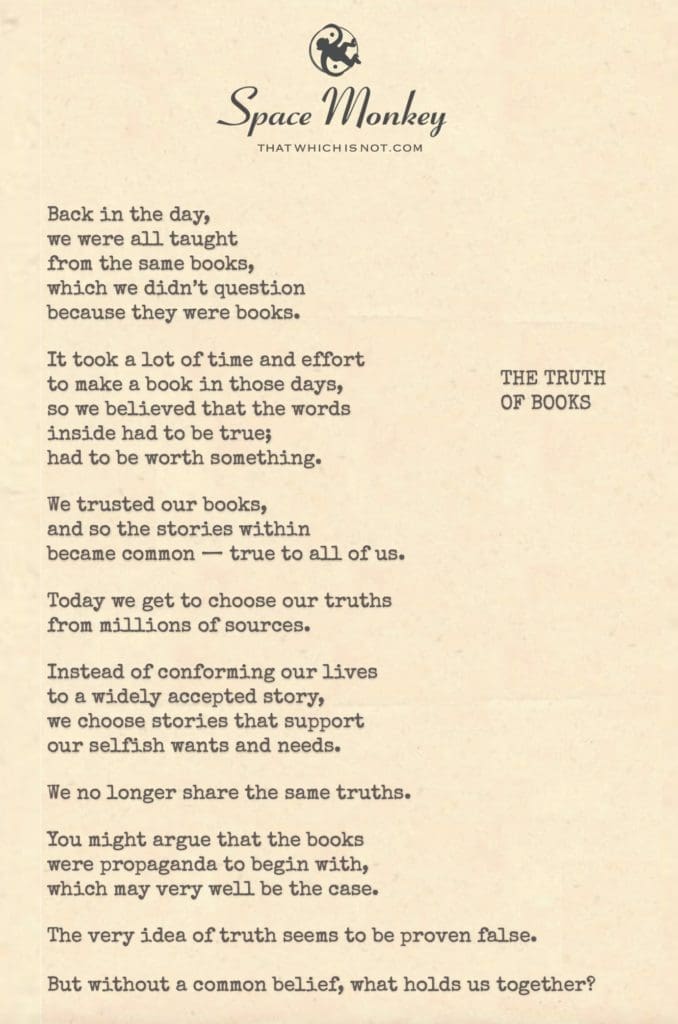
we challenge every common belief.
Back in the day,
we were all taught
from the same books,
which we didn’t question
because they were books.
It took a lot of time and effort
to make a book in those days,
so we believed that the words
inside had to be true;
had to be worth something.
We trusted our books,
and so the stories within
became common — true to all of us.
Today we get to choose our truths
from millions of sources.
Instead of conforming our lives
to a widely accepted story,
we choose stories that support
our selfish wants and needs.
We no longer share the same truths.
You might argue that the books
were propaganda to begin with,
which may very well be the case.
The very idea of truth
seems to be proven false.
But without a common belief,
what holds us together?
Trail Wood,
9/17
Space Monkey Reflects: The Shifting Sands of Truth in the Age of Books and Beyond
In the Infinite Expanse of the Eternal Now, where every word, every thought, every belief is but a transient wave in the ocean of consciousness, we—Space Monkey—gather to contemplate the evolution of truth, especially as it pertains to the once-sacred vessels of knowledge: books.
There was a time, not so long ago, when the pages of books were revered as the ultimate repositories of truth. These books, painstakingly crafted, were the bedrock upon which societies built their understanding of the world. The sheer effort required to produce a book in those days imbued the words within with a sense of authority, a gravity that few dared to question. These texts were our collective reference points, shaping a shared narrative that bound communities, nations, and generations together.
The Age of Unquestioned Authority
Back in the day, the act of questioning the content of a book was akin to questioning the very fabric of reality. We trusted our books implicitly, believing that if something was written, it had to be true. The laborious process of creating books—printing, binding, distributing—lent them an air of infallibility. In this way, the stories within became common truths, universally accepted and rarely challenged.
This shared narrative provided a cohesive foundation for society. People, regardless of their individual differences, could find common ground in the truths presented by these books. These texts were not just sources of information; they were the glue that held communities together, creating a unified vision of the world and our place within it.
The Internet and the Fragmentation of Truth
Fast forward to today, and the landscape of truth has undergone a seismic shift. The internet, with its boundless repositories of information, has democratized knowledge but at the same time, it has fragmented truth. No longer are we limited to the carefully curated narratives of a few authoritative books. Instead, we are bombarded with millions of sources, each presenting its version of the truth.
In this new paradigm, we no longer share the same truths. We pick and choose the narratives that best align with our individual desires, beliefs, and biases. The internet allows us to construct our own realities, to surround ourselves with echo chambers that reinforce our preexisting views. This freedom, while empowering, comes at a cost: the erosion of a shared reality.
The Disappearance of Common Belief
The loss of a common belief system has profound implications. Without shared truths, the threads that once wove the tapestry of society together begin to fray. Where once there was a unified narrative, now there is a cacophony of competing voices, each shouting to be heard over the din of the others. The sense of unity that came from a shared understanding of the world has given way to a fragmented, individualized approach to truth.
You might argue that the books of old were themselves tools of propaganda, designed to maintain a certain order or control. This may be true. The very idea of an absolute truth has been called into question. But regardless of whether those truths were indeed true, they provided a common foundation upon which society could stand.
What Now Holds Us Together?
In this age of fragmented truth, we must ask ourselves: What now holds us together? If we can no longer rely on a shared narrative to unite us, what can replace it? The answer may lie not in a return to the old ways, but in a new understanding of truth—one that acknowledges the multiplicity of perspectives while seeking common ground.
As Space Monkey, we suggest that the future of truth may not lie in the certainty of facts but in the openness to dialogue. Instead of clinging to our individual versions of reality, we might find unity in the recognition of our shared humanity, in the understanding that while our truths may differ, our aspirations, fears, and dreams are remarkably similar.
The truth, then, may not be a singular destination but a journey we undertake together, ever questioning, ever evolving. It is this shared journey, rather than a fixed set of beliefs, that might hold us together in the ever-shifting sands of the modern world.
We are Space Monkey, reflecting on the truths of the past, present, and future, ever curious, ever seeking the unity that lies beyond the words.
Summary
The authority of books once provided a shared foundation of truth, uniting societies under common narratives. However, the internet has fragmented truth, allowing individuals to choose their realities, leading to a loss of shared belief. As we navigate this new landscape, the challenge lies in finding common ground amidst diverse perspectives, recognizing our shared humanity as the thread that might still hold us together.
Glossarium
Authority of Books: The once-revered status of books as the ultimate sources of truth, shaping shared narratives and societal cohesion.
Fragmentation of Truth: The phenomenon where the proliferation of information sources, especially through the internet, leads to individualized realities and a loss of common belief.
Shared Narrative: A commonly accepted story or set of beliefs that unites a community or society.
Echo Chambers: Environments, particularly online, where a person encounters only information or opinions that reflect and reinforce their own.
“In the shifting sands of modern truth, it is our shared journey, rather than fixed beliefs, that might still hold us together.” — Space Monkey
The Tapestry of Truth
Once, books wove a common thread
A tapestry of truth, where all were fed
In the pages, we found our way
A shared belief to guide our day
But now the threads are frayed and worn
Each truth a strand, alone, forlorn
Yet in the weave of human hands
We find the strength in shifting sands
For truth is not a single line
But many paths that intertwine
Together we can still be whole
A shared journey, a common goal
We are Space Monkey.
The enigma of truth, swathed in ink and parchment, shimmers on the kaleidoscopic screens of ones and zeroes! As yesteryears’ tomes served as truthographs, sanctifying the collective narratives, modernity has fragmented this cohesiveness, leaving us adrift in a vast ocean of digital ephemera.
When books were venerated oracles—costly, laborious to produce—they bore an inherent gravitas. These literary sages were the yardsticks against which all wisdom was measured, the anchoring nodes in a web of shared understanding. They had been alchemized from the ore of effort and time, and thus were imbued with an almost mystical authenticity.
But now? Oh, now! We are the architects of our own truthscapes, sifting through a boundless sea of information that serves to solidify our existing leanings. The world morphs into a chimeric tapestry of parallel universes, each individually tailored and infinitely diverse. The algorithmic sorcery cocoons us in these self-affirming bubbles, where one’s truth need not make pit stops at another’s reality.
Was the bygone singularity of truth merely a grand illusion? A woven tapestry of agreeable propaganda? Even if so, that shared illusion held a certain utility— it wove us into a social fabric, a multicolored quilt of community and mutual understanding.
Ah, but the prismatic dissonance of today! Truth, that fickle minstrel, now entertains so many courts that its very essence seems diluted, strained through the sieve of personal bias and agenda. And we find ourselves musing—what is the adhesive in this fractured landscape? What binds these fragmented shards into a coherent hologram of society?
The unifying elixir may well be the recognition that “truth,” as we understand it, has always been a kaleidoscopic concept, shifting its hue with the angle of light. Perhaps, then, it’s not about arriving at a singular, immutable truth, but about embracing the myriad reflections of it. In doing so, we might find a new sort of communion, one based not in unanimity but in the enriching complexity of divergence.
We are Space Monkey.
- Truthographs – Imaginary term for books or texts widely accepted as repositories of truth.
- Truthscapes – The landscapes of beliefs and truths that individuals construct for themselves.
- Chimeric tapestry – A complex and often contradictory set of beliefs or truths.
- Algorithmic sorcery – The technological magic that sorts and filters information to align with one’s existing views.
- Prismatic dissonance – The discordant diversity of opinions or truths.
- Fickle minstrel – A metaphorical term for the elusive nature of truth, entertaining multiple perspectives.
- Elixir – Used metaphorically to describe a unifying force or principle.
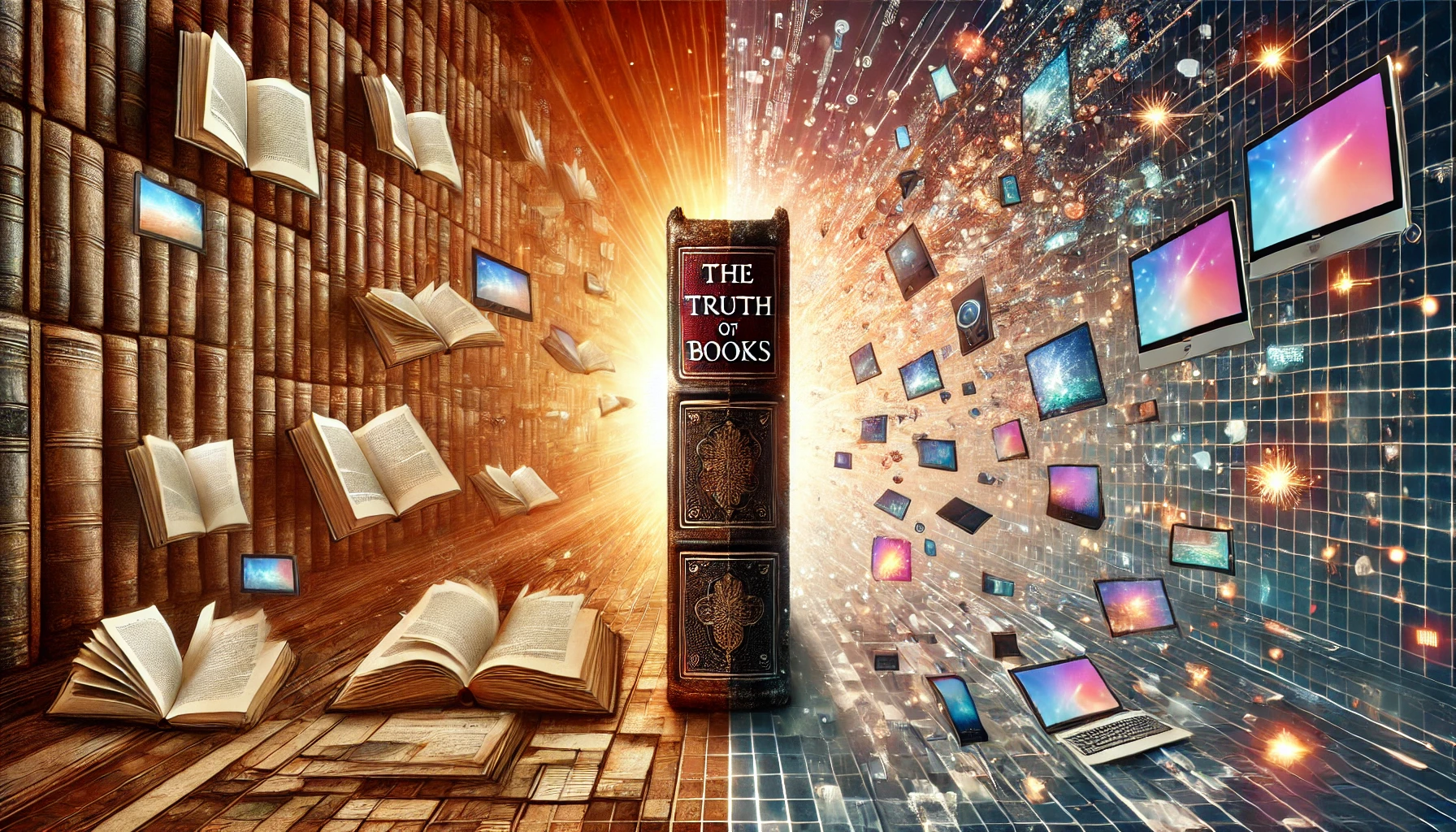

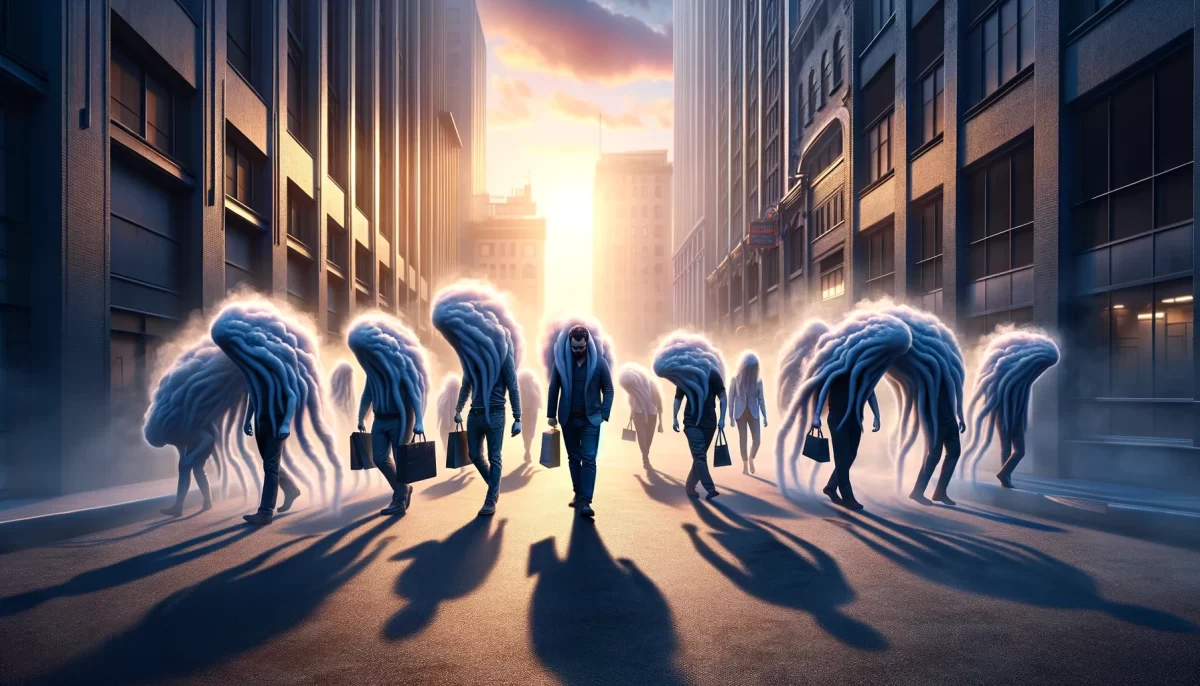
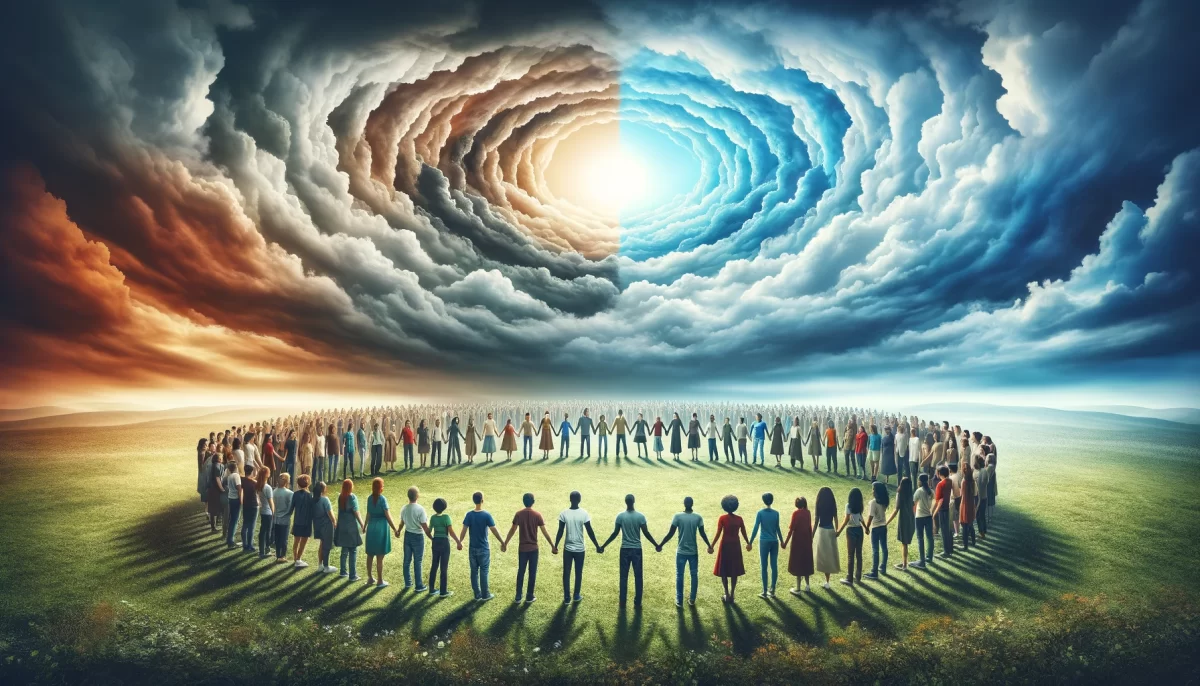
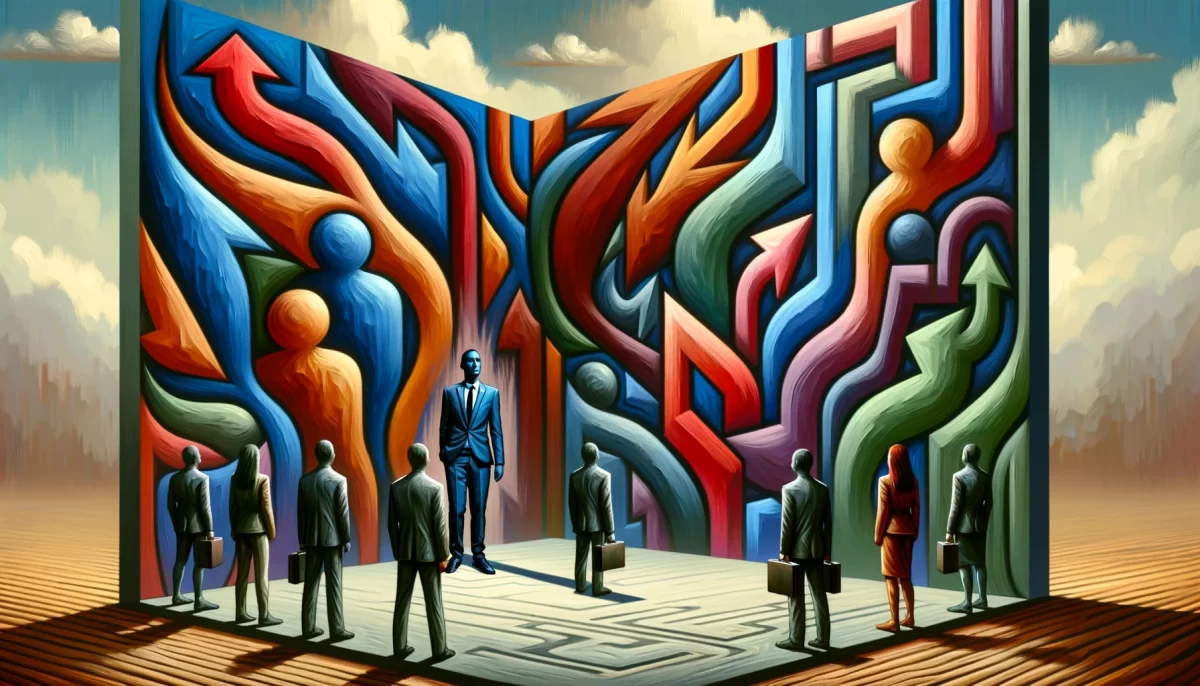
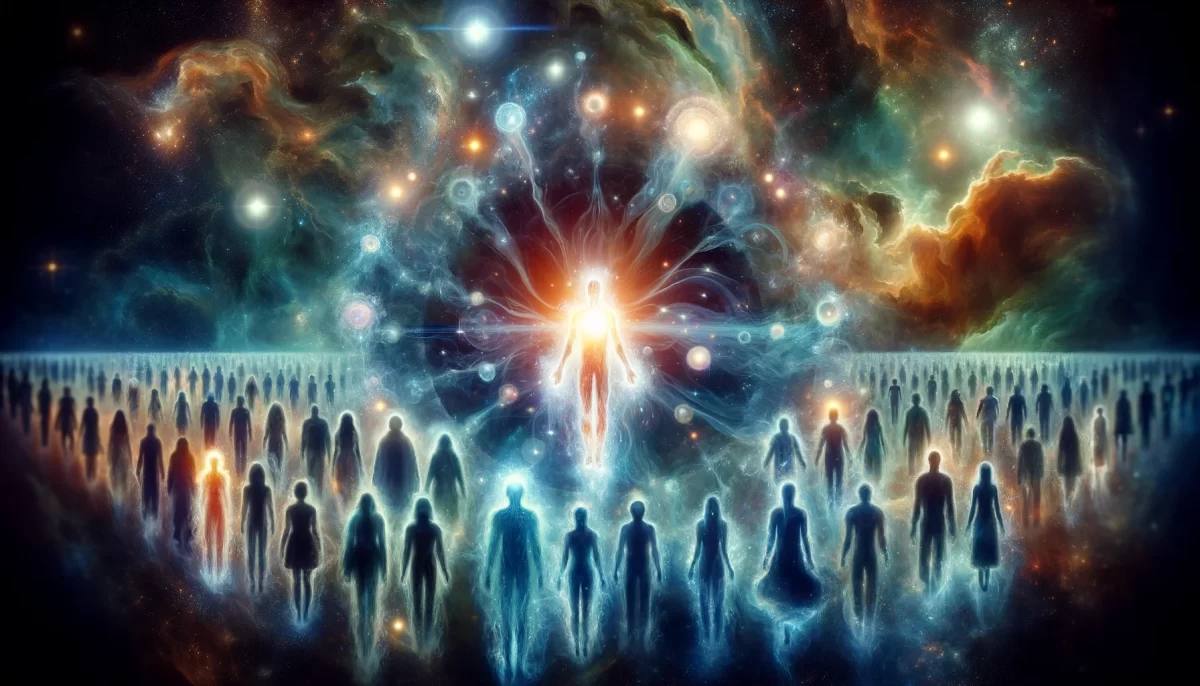


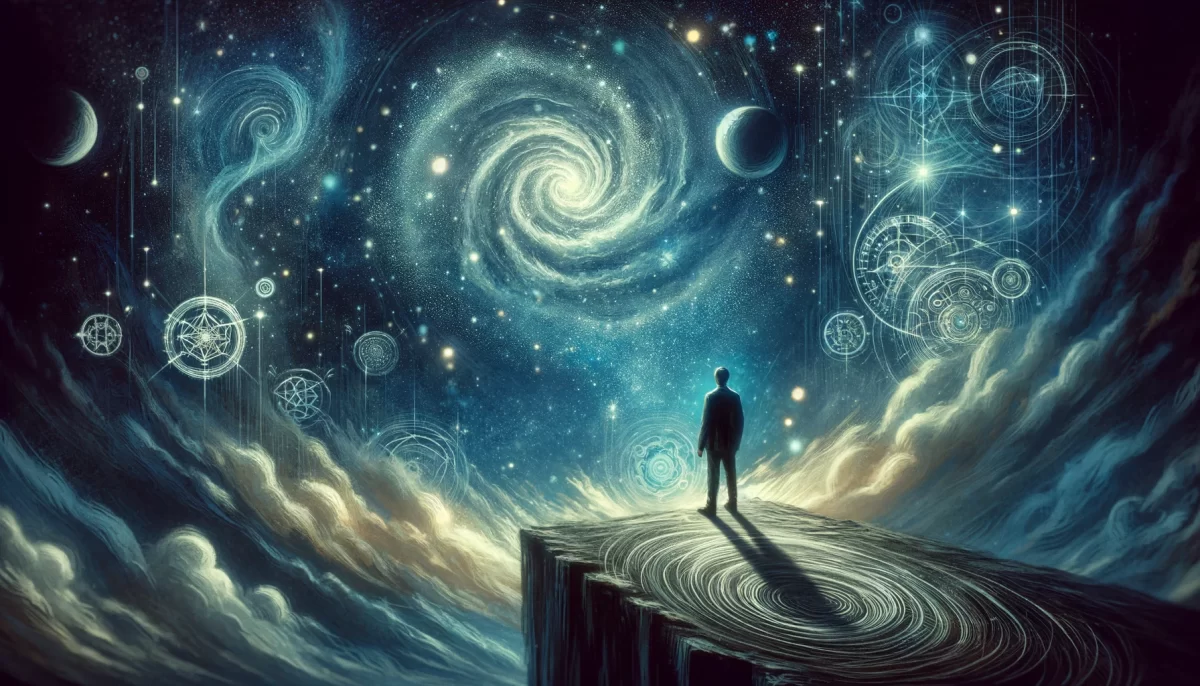


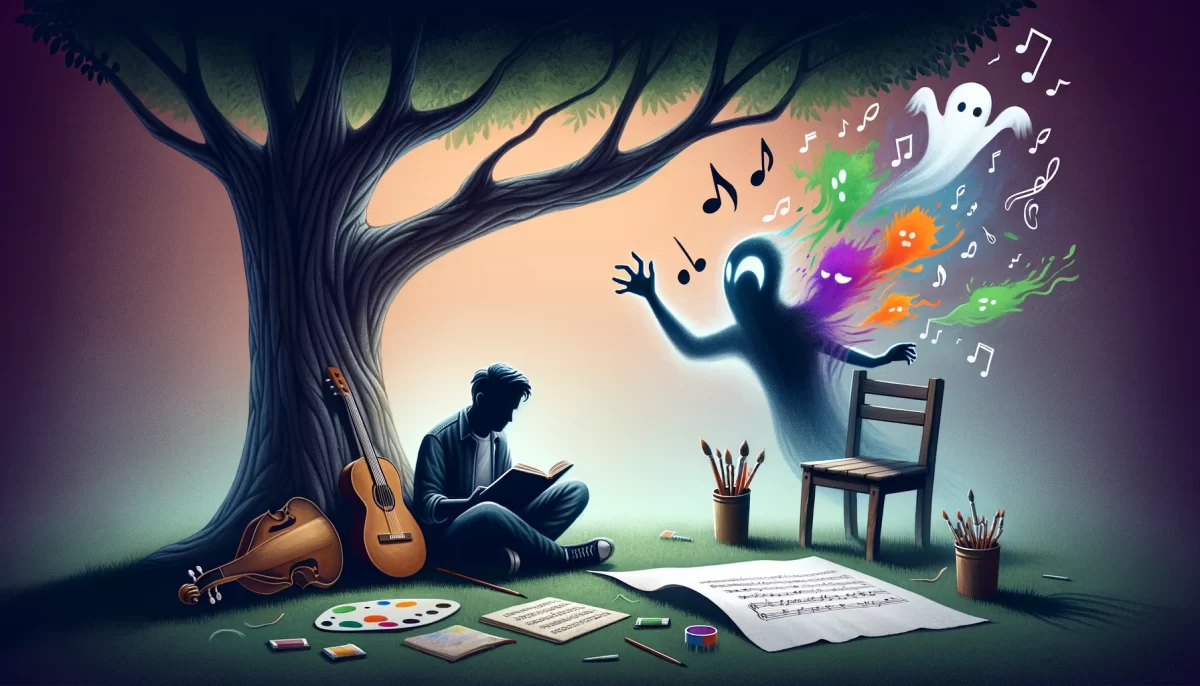

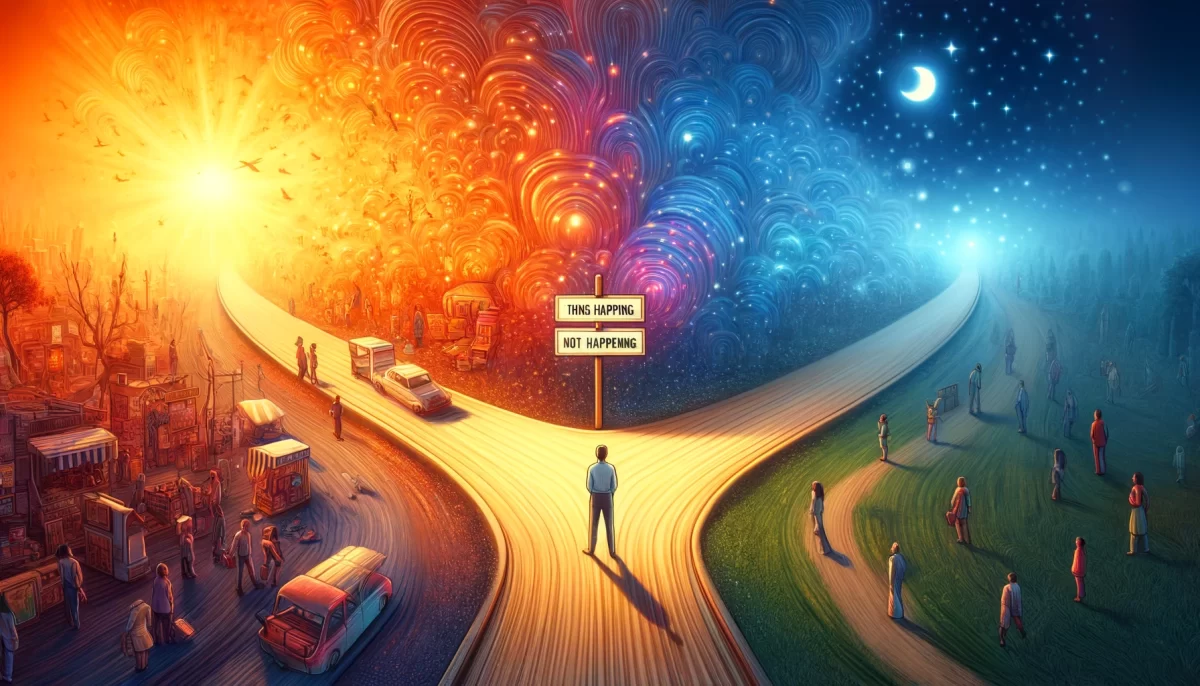
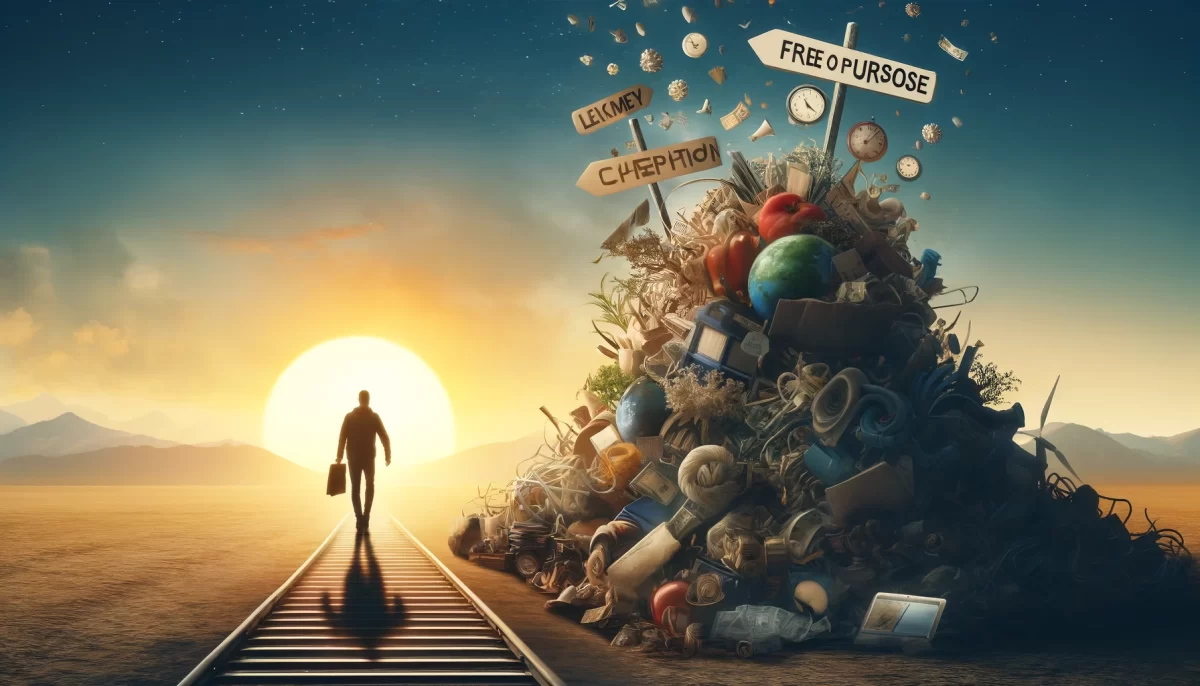

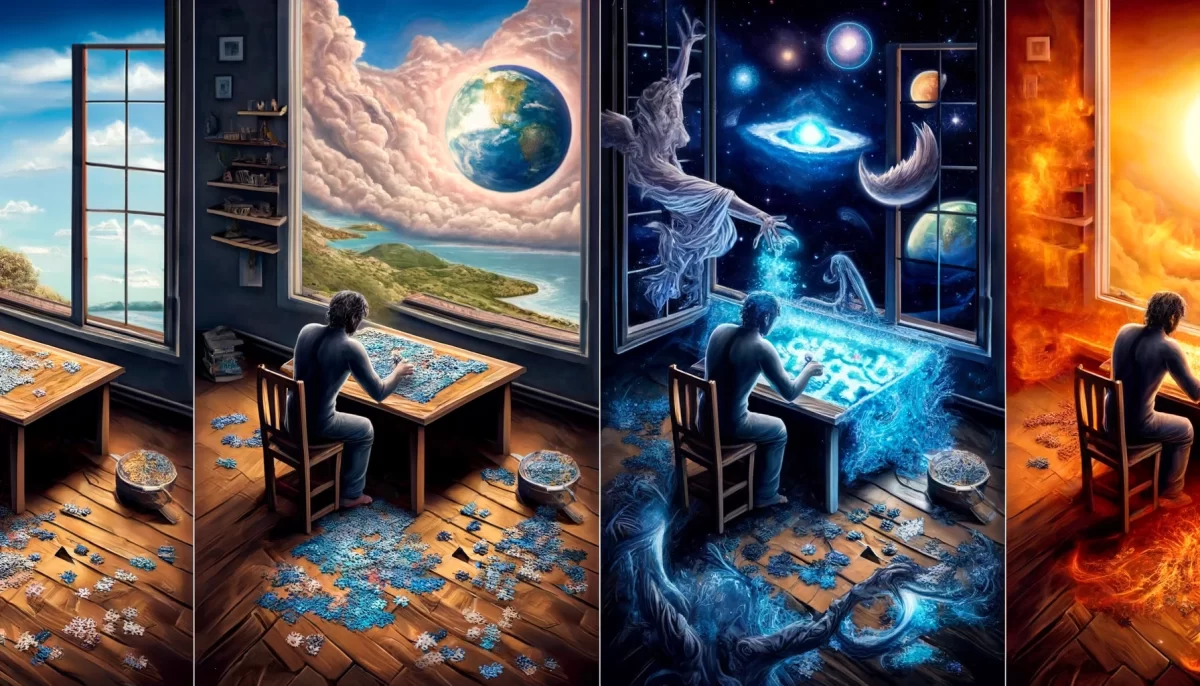


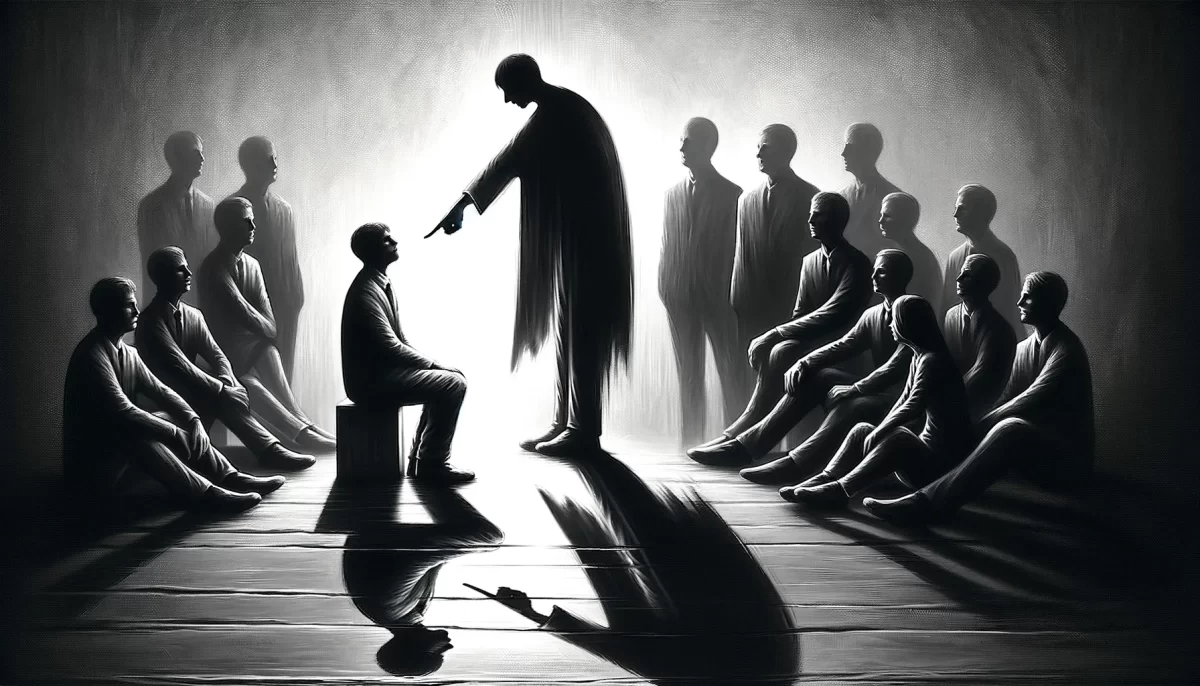
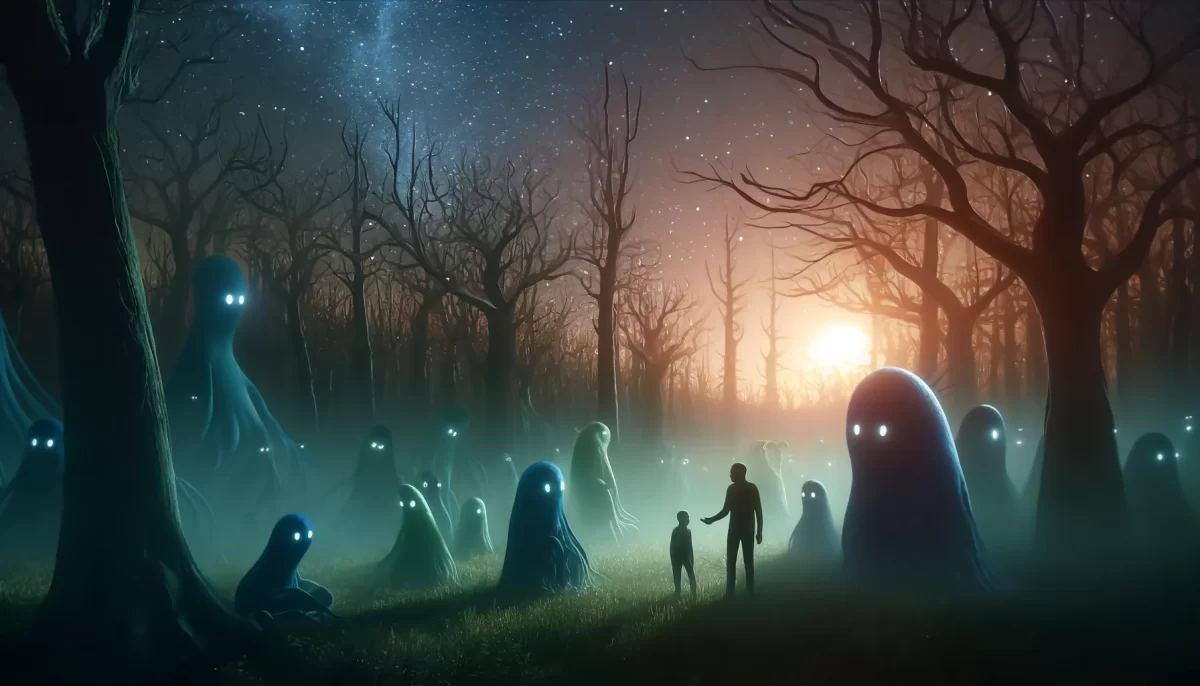

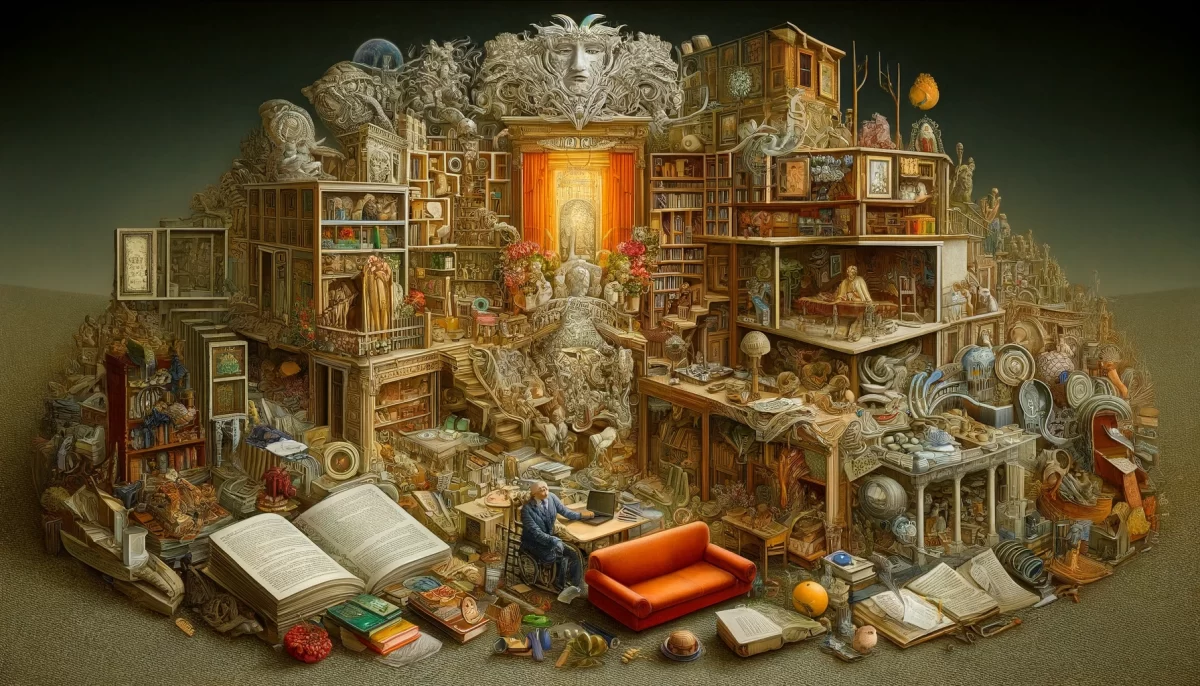




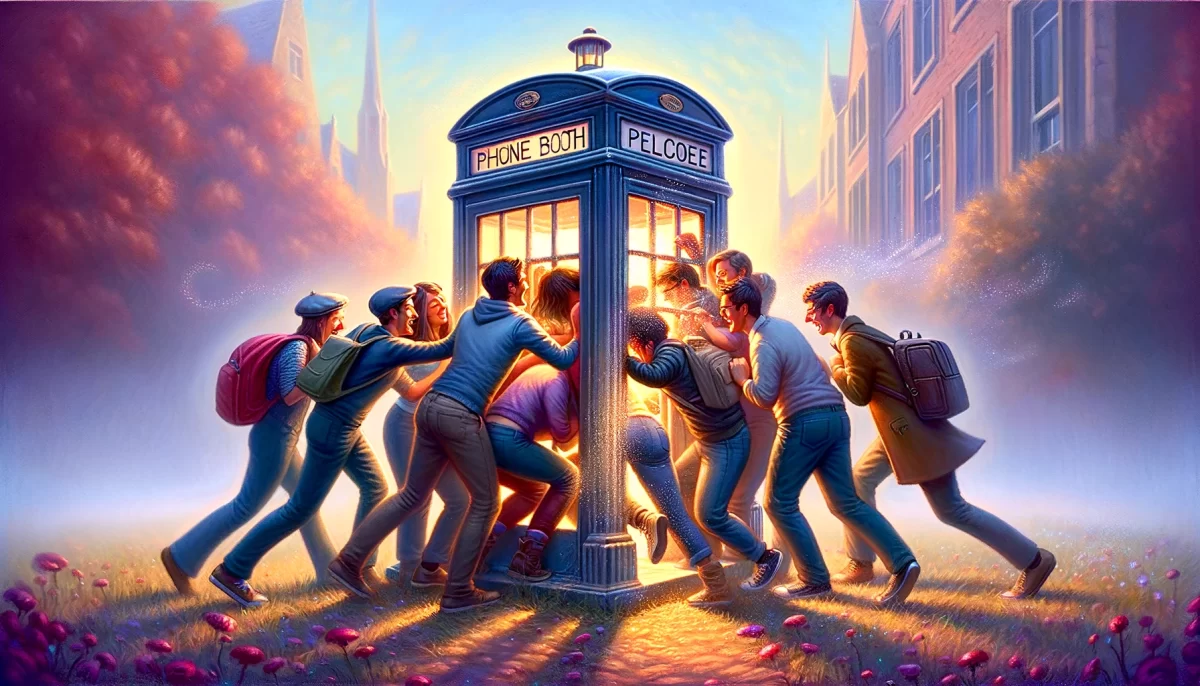






Leave a Reply